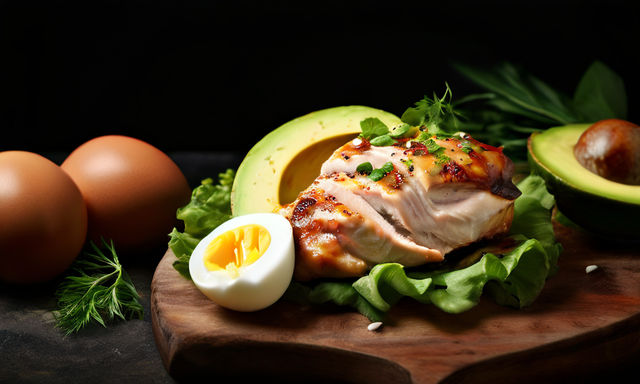Muscle Building Foods Video
When it comes to building muscle, no single food can magically cause muscle growth. Achieving muscle hypertrophy—increasing the size of muscle cells—is a process influenced by consistent strength training, adequate protein intake, and maintaining a caloric surplus. However, certain foods can significantly support your muscle-building goals by providing the necessary nutrients to fuel your workouts and aid recovery. Here's a look at some key muscle-building foods and why they're important for anyone looking to gain muscle mass.
Understanding the Basics of Muscle Building
Before diving into specific foods, it's essential to understand the fundamental principles of muscle building:
- - Progressive Overload: Continuously increasing the demands on the musculoskeletal system to gain muscle strength and endurance.
- - Adequate Protein: Consuming enough protein to promote muscle repair and growth.
- - Calorie Surplus: Eating more calories than you burn to provide your body with the energy needed for muscle synthesis.
With these principles in mind, here are the top foods that can help you on your muscle-building journey.
Key Foods for Muscle Building
1. Lean Meats
- - Chicken and Turkey: These poultry options are staples in many bodybuilding diets due to their high protein content and low fat. They provide essential amino acids that help in muscle repair and growth.
- - Lean Beef: Rich in protein, iron, and zinc, lean beef can be a beneficial addition to a muscle-building diet. Iron helps in transporting oxygen to muscle cells, crucial during intense workouts.
2. Fish
- - Salmon: Besides being a great source of protein, salmon is loaded with omega-3 fatty acids, which can aid in muscle recovery and inflammation reduction.
- - Tuna: High in protein and low in calories, tuna is another excellent choice for those looking to add muscle without excess fat.
3. Dairy
- - Greek Yogurt: This thicker, more protein-rich version of regular yogurt can be an excellent post-workout snack. It contains a combination of fast-digesting whey protein and slow-digesting casein protein.
- - Cottage Cheese: Like Greek yogurt, cottage cheese is high in casein protein, making it ideal for muscle maintenance, especially before bedtime.
4. Eggs
- - Whole Eggs: A powerhouse of nutrition, eggs provide high-quality protein along with essential nutrients like B vitamins, which are crucial for energy production.
5. Legumes
- - Chickpeas, Lentils, and Beans: These are not only high in protein but also a great source of fiber and micronutrients. They can help support overall body health, including muscle growth.
6. Whole Grains
- - Quinoa and Brown Rice: These grains provide the necessary carbohydrates that help fuel intense workouts and recovery.
7. Nuts and Seeds
- - Almonds, Chia Seeds, and Flaxseeds: These are good sources of protein and healthy fats, making them great for a balanced diet that supports muscle growth.

Tips for Incorporating These Foods into Your Diet
- 1. Plan Balanced Meals: Each meal should include a source of protein, a form of carbohydrates, and some healthy fats.
- 2. Post-Workout Nutrition: After exercise, aim to consume a meal rich in protein and carbohydrates to aid in recovery and muscle synthesis.
- 3. Stay Hydrated: Water plays a crucial role in nutrient transport and muscle recovery, so make sure to stay well-hydrated throughout the day.
Conclusion
Building muscle effectively requires more than just consistent training; it demands proper nutrition tailored to your body's needs. By incorporating a variety of protein-rich foods along with balanced carbohydrates and fats, you can create an optimal environment for muscle growth. Remember, it’s also important to adjust your calorie intake based on your activity level and muscle-building goals. With the right approach, you’ll be on your way to stronger, larger muscles.
Disclaimer: This article is for informational purposes only and does not constitute medical advice. It’s always best to consult with a healthcare provider or a nutritionist to tailor advice specifically to your health conditions and dietary needs.